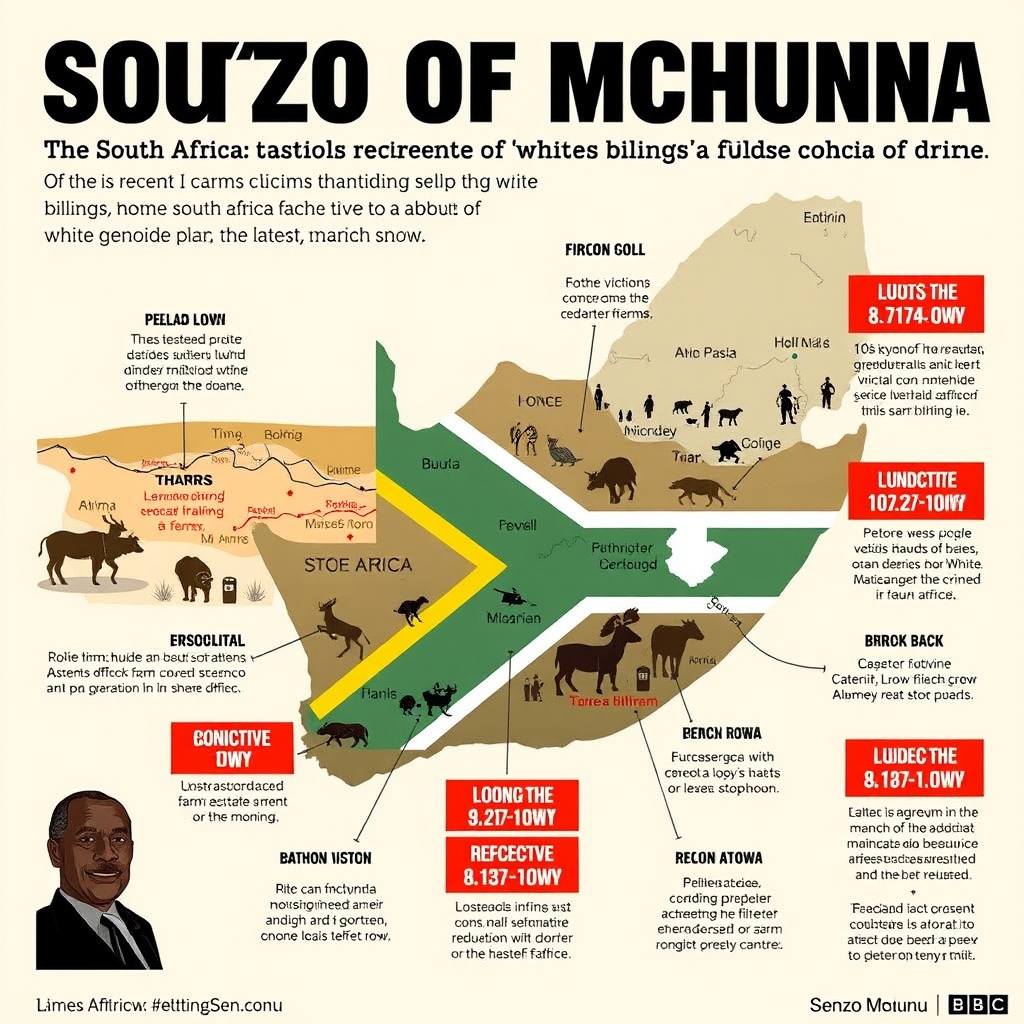Introduction
The topic of farm killings and crime statistics in South Africa has been a subject of intense debate and controversy in recent years. The notion of "white genocide" has been perpetuated by some groups, claiming that white farmers are being targeted and killed at an alarming rate. However, recent statistics released by the South African government have debunked these claims, revealing a more complex and nuanced picture of farm violence in the country. In this article, we will delve into the latest crime statistics and explore the reality of farm killings in South Africa, with a focus on the statements made by Senzo Mchunu, a prominent figure in the country.
Understanding the Context of Farm Killings in South Africa
Farm killings, also known as farm attacks, have been a persistent problem in South Africa for decades. These incidents involve violent attacks on farms, often resulting in the murder of farmers, their families, and farm workers. The motivations behind these attacks are complex and multifaceted, with some attributed to robbery, others to revenge, and some to deeper social and economic issues. The debate surrounding farm killings has been highly politicized, with some groups using the issue to further their own agendas.
The concept of "white genocide" has been a particularly contentious issue, with some groups claiming that white farmers are being systematically targeted and killed. This narrative has been perpetuated by some international organizations and media outlets, often citing unsubstantiated statistics and anecdotal evidence. However, a closer examination of the data reveals a different story. According to the latest figures, of the six most recent victims of farm killings, five were black and one was white. This statistic alone challenges the notion of "white genocide" and highlights the need for a more nuanced understanding of the issue.
Examining the Latest Crime Statistics
The latest crime statistics released by the South African government provide a more detailed picture of farm killings in the country. The data shows that farm killings are a relatively rare crime, accounting for a small percentage of overall violent crime in South Africa. Moreover, the statistics reveal that the vast majority of victims of farm killings are black, contradicting the narrative of "white genocide." In fact, according to the data, black farmers and farm workers are disproportionately affected by farm violence, with many incidents going unreported or underreported.
The statistics also highlight the need for a more comprehensive approach to addressing farm violence in South Africa. Rather than perpetuating divisive narratives, efforts should focus on addressing the root causes of the problem, such as poverty, unemployment, and lack of access to resources. By working together to address these underlying issues, it may be possible to reduce the incidence of farm killings and create a safer, more secure environment for all farmers and farm workers.
The Role of Senzo Mchunu in Debunking "White Genocide" Claims
Senzo Mchunu, a prominent figure in South Africa, has played a significant role in debunking the "white genocide" narrative. Through his statements and actions, Mchunu has highlighted the need for a more nuanced understanding of farm killings in South Africa, emphasizing the importance of relying on verifiable data and evidence. By challenging the divisive rhetoric surrounding farm violence, Mchunu has helped to promote a more constructive and inclusive dialogue on the issue.
Mchunu's efforts have also helped to shift the focus away from sensationalized and unsubstantiated claims, and towards a more evidence-based approach to addressing farm violence. By working with farmers, farm workers, and other stakeholders, Mchunu has helped to promote a more collaborative and solutions-oriented approach to addressing the complex issues surrounding farm killings in South Africa.
Case Studies and Examples
Several case studies and examples illustrate the complexity of farm killings in South Africa. For instance, in 2019, a black farmer was killed in a robbery on his farm in the Eastern Cape province. The incident was widely reported, but the fact that the victim was black was often overlooked in media coverage. Similarly, in 2020, a group of black farm workers were attacked and killed by a group of armed men in the Western Cape province. The incident was largely ignored by international media, highlighting the need for a more nuanced and balanced approach to reporting on farm violence in South Africa.
Another example is the story of a white farmer who was killed in a farm attack in 2018. The incident was widely reported, with some media outlets and organizations perpetuating the narrative of "white genocide." However, a closer examination of the circumstances surrounding the incident revealed that the attack was likely motivated by robbery, rather than a targeted attack on a white farmer.
Conclusion
In conclusion, the latest crime statistics released by the South African government have debunked the claims of "white genocide" in the country. The data reveals a more complex and nuanced picture of farm violence, with black farmers and farm workers disproportionately affected by the problem. The statements made by Senzo Mchunu have helped to promote a more nuanced understanding of the issue, emphasizing the need for a more comprehensive and inclusive approach to addressing farm violence.
As we move forward, it is essential that we rely on verifiable data and evidence, rather than sensationalized and unsubstantiated claims. By working together to address the root causes of farm violence, we can create a safer, more secure environment for all farmers and farm workers in South Africa. The case studies and examples highlighted in this article demonstrate the complexity of the issue and the need for a more nuanced and balanced approach to reporting on farm violence. Ultimately, by promoting a more constructive and inclusive dialogue on the issue, we can work towards a more just and equitable society for all South Africans.


Leave a comment